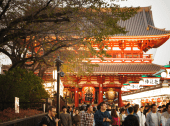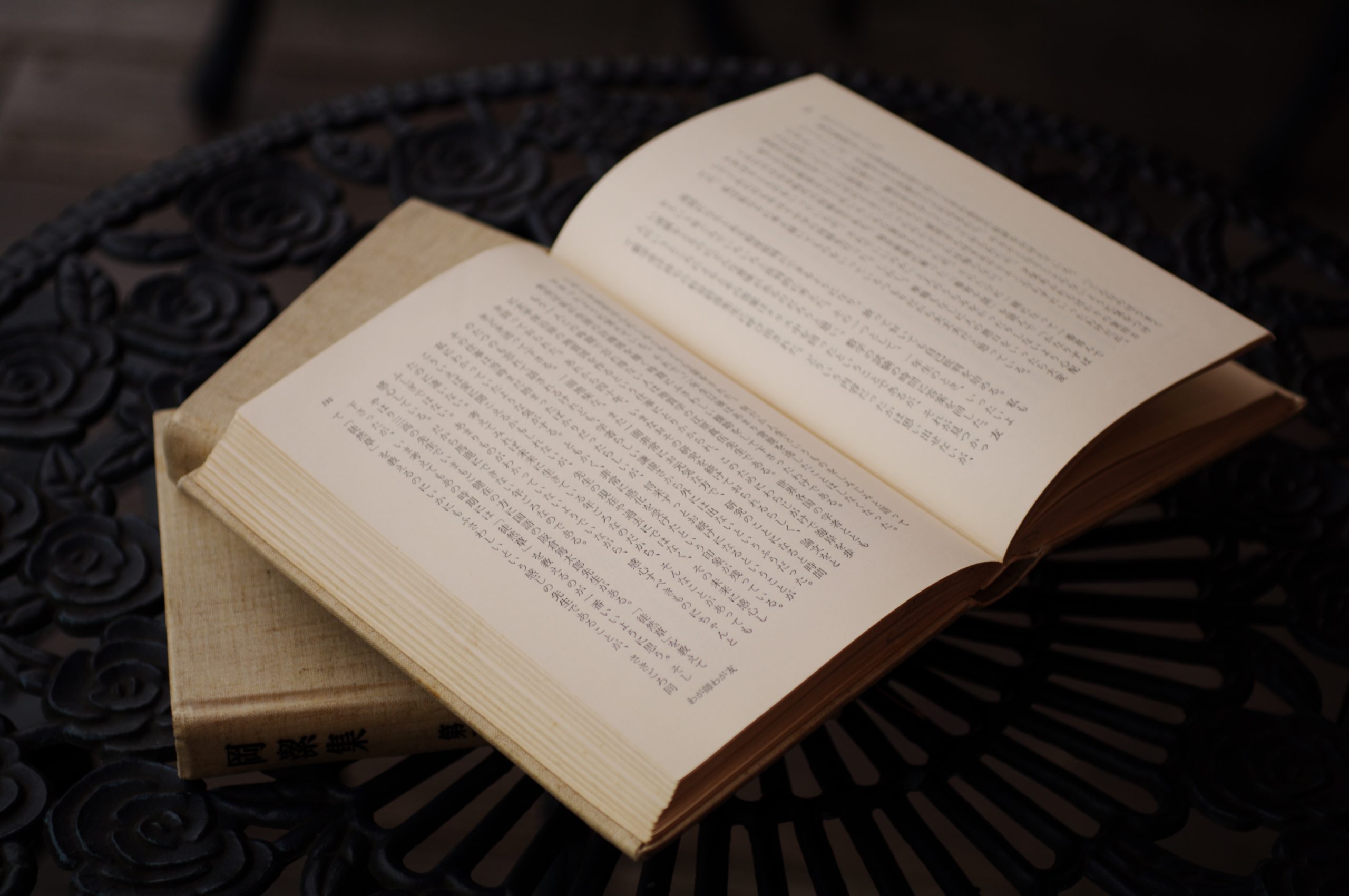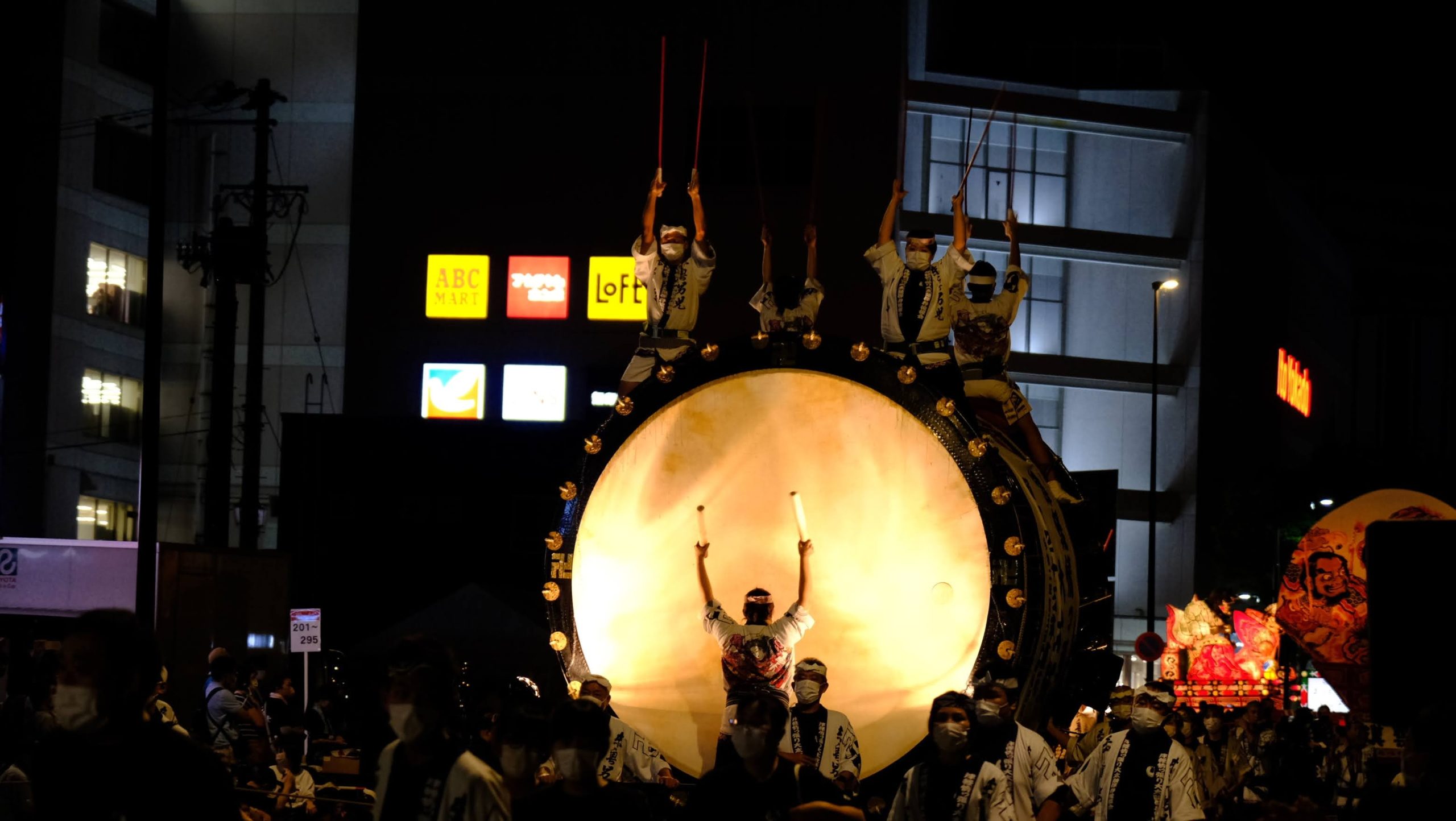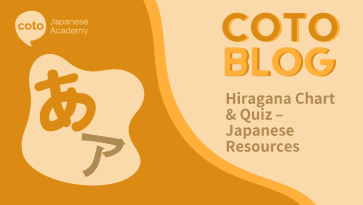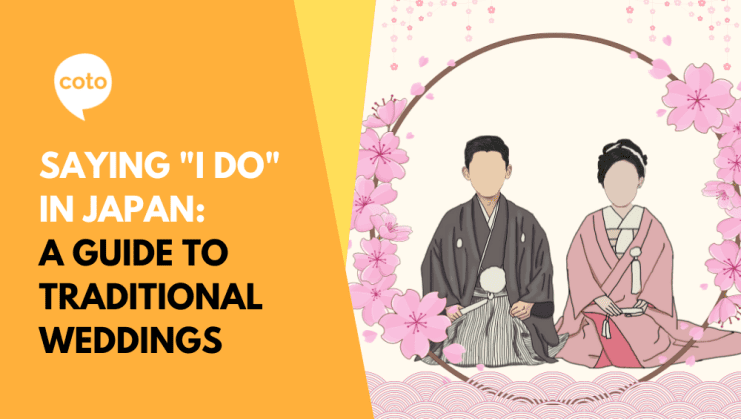
Japan, a land steeped in rich tradition and captivating beauty, offers a unique glimpse into the world of weddings. Stepping beyond the typical white gown and ceremony, Japanese weddings blend ancient Shinto rituals with modern elements, creating a ceremony brimming with cultural significance and emotional depth. This blog will take you through traditional Japanese weddings, unraveling their customs, symbols, and meanings.
A Quick Jump To…
- A Ceremony Rich in Tradition
- A Feast for the Eyes and Soul
- Location Choice
- Modern Meets Tradition
- Sharing the Joy
- Delving Deeper
- Useful Japanese Phrases
- FAQ
A Ceremony Rich in Tradition
Traditionally, Shinto ceremonies unfold within serene shrines, where couples pledge their love under the watchful gaze of the 神 kami (spirits). The air thrums with the solemnity of ancient rituals, each one imbued with symbolic meaning:
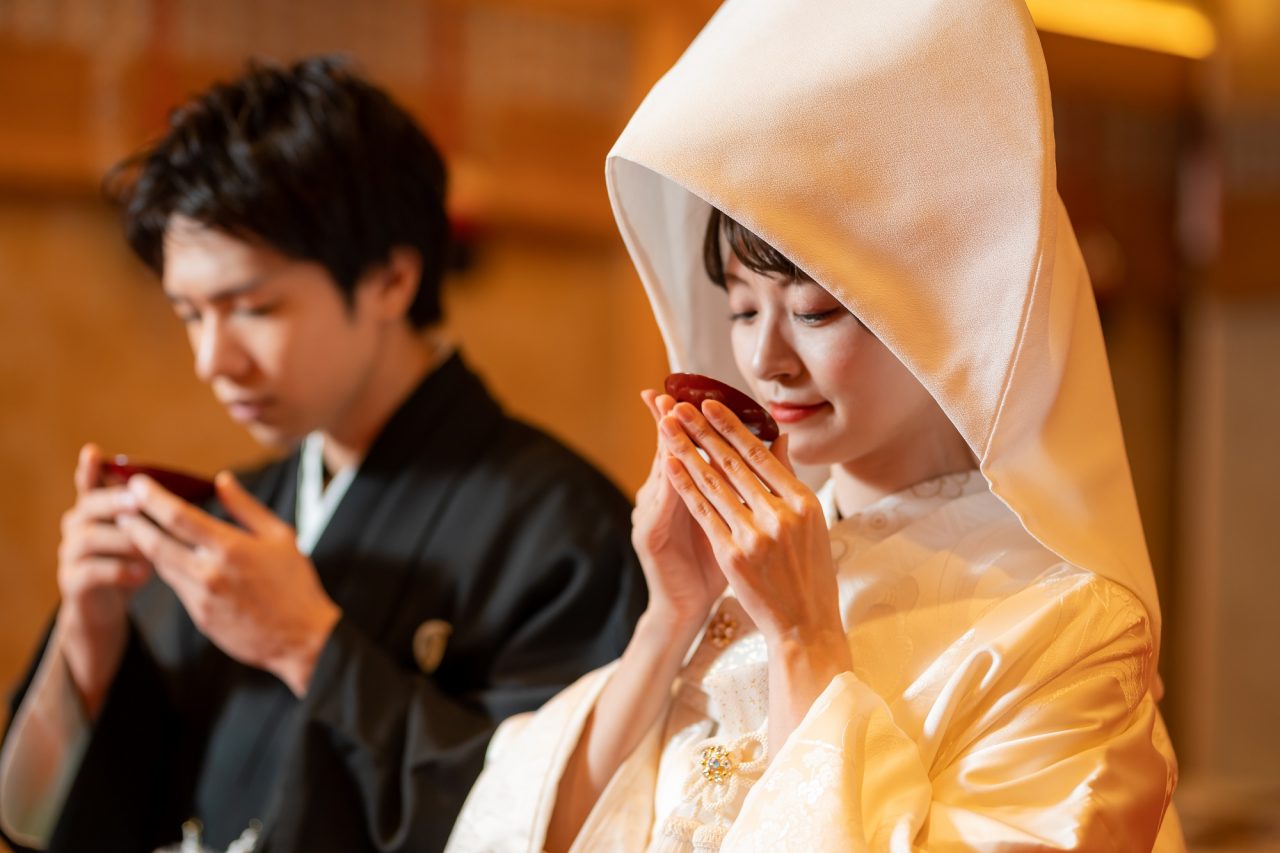
- 三々九度 San-san-kudo: The cornerstone of the ceremony, this ritual sees the bride and groom sip sake thrice from specially sized cups – three representing heaven, earth, and humanity, and nine symbolizing a long and prosperous union.
- 結納 Yui-no: A formal exchange of betrothal gifts between families, marking the official commencement of the journey towards marriage.
- 水引き Mizuhiki: Exquisite, decorative knots adorning envelopes containing monetary gifts (ご祝儀 goshugi), representing blessings and the intertwining of lives.
A Feast for the Eyes and Soul
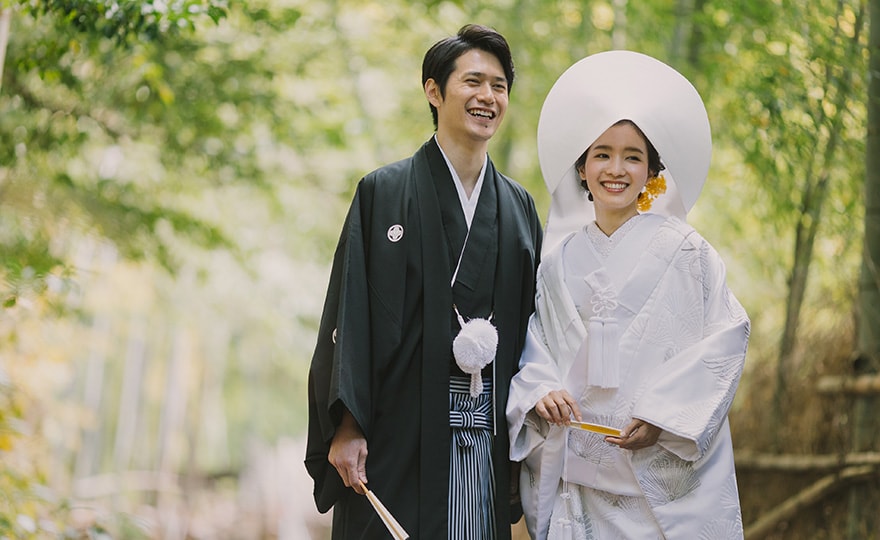
Beyond the rituals, the visual splendor of a Japanese wedding captivates the senses. Brides usually adorn themselves in the immaculate white 白無垢 shiro-muku kimono, symbolizing purity and transformation. Grooms, in turn, opt for formal black attire, exuding elegance and dignity. The ceremony venue may be adorned with vibrant floral arrangements, each bloom meticulously chosen for its auspicious meaning.
Location Choice
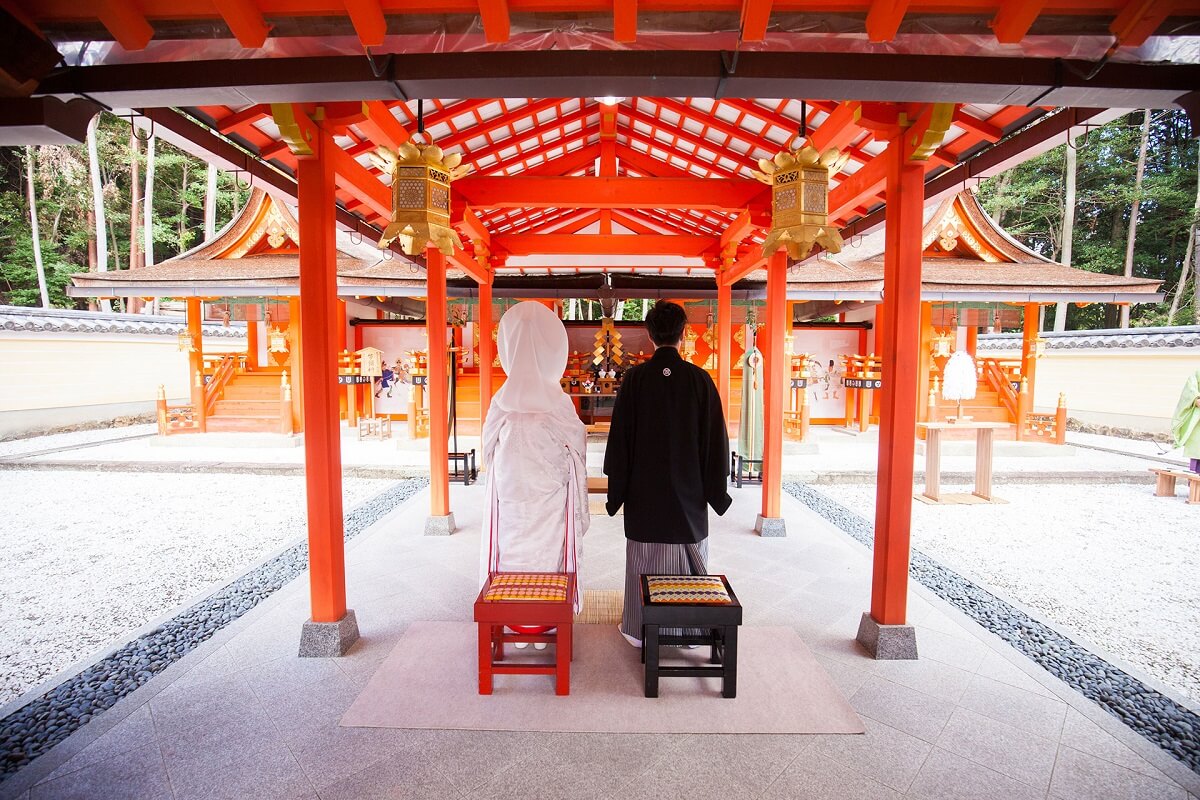
Traditional Japanese weddings are often held at Shinto shrines or Buddhist temples. Shrines offer a natural backdrop with their serene gardens and architectural beauty. Temples, often steeped in history, provide a sense of spiritual significance. Popular choices include the Meiji Shrine in Tokyo, Kiyomizu-dera Temple in Kyoto, and Okakuen in Yokohama.
Modern Meets Tradition
While deeply rooted in tradition, Japanese weddings embrace a touch of modernity. Western-style ceremonies in chapels or hotels are increasingly popular, often incorporating Christian elements. Couples can also personalize their attire, opting for contemporary wedding dresses or modified kimonos that reflect their style.
Sharing the Joy

The celebratory spirit spills into the reception, a vibrant affair filled with laughter, merriment, and heartfelt speeches. Guests partake in a multi-course meal, often featuring traditional Japanese delicacies and Western-inspired dishes. Toasts are raised with a resounding 乾杯 kanpai! – a toast to love, happiness, and the newly formed union.
Delving Deeper
For those seeking a deeper understanding, here are some additional insights:
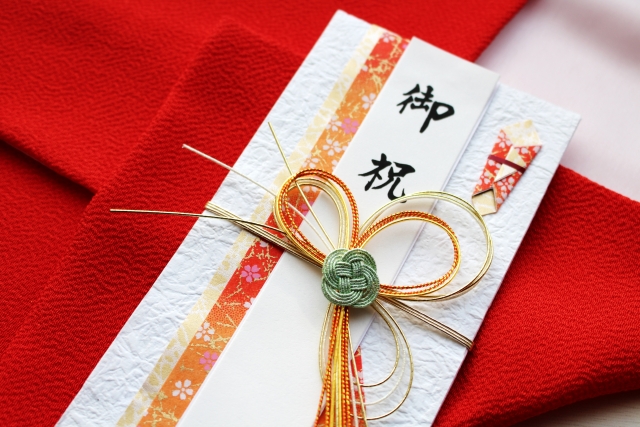
- Etiquette: Respect is paramount. Dress modestly, observe silence during sacred rituals, and remove shoes when entering certain areas.
- Gift-giving: Monetary gifts (ご祝儀 goshugi) in designated envelopes are customary. The amount is determined by the couple’s age and social standing.
- Second Receptions: Some couples prefer a separate Western-style ceremony and reception to cater to friends and family abroad.
Useful Japanese Phrases
- おめでとうございます。 Omedetōgozaimasu. – Congratulations.
- ご結婚おめでとうございます。 Gokekkon’omedetōgozaimasu. – This is the most basic and straightforward way to say “Congratulations on your marriage!”.
- どうぞお幸せに。 Dōzo oshiawaseni. – This translates to “Wishing you both happiness”.
- 末永くお幸せに。 Suenagaku oshiawaseni. – This is a more formal way of saying “Wishing you a long and happy marriage”.
- 本日は誠におめでとうございます。 Honjitsu wa makotoni omedetōgozaimasu. – This means “Congratulations on this special day”.
- お招きいただきありがとうございます。 O maneki itadaki arigatōgozai masu. – This thanks the hosts for inviting you.
- 乾杯! kanpai! – Cheers!
You Might Be Wondering…
Are guests expected to give gifts?
Yes, money gifts (ご祝儀, goshugi) are customary in 祝儀袋 Shugi-bukuro, celebration envelopes.
What about after parties?
Receptions often follow, featuring speeches, performances, and a multi-course meal.
Can foreigners participate?
Absolutely! Respect cultural norms and dress modestly.
Want to learn and study more about the Japanese language and culture?
Book a free level check consultation with us to join!





